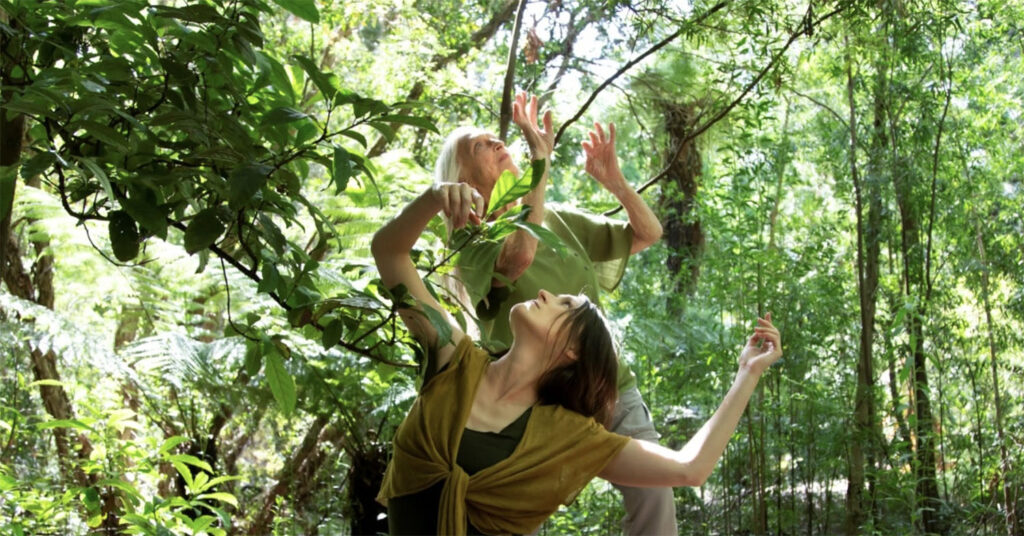By Cate Rosa, Alliance Intern from Boston University ’26
In contemporary society, it’s commonly held that humanity stands apart from nature. Yet, when we examine the intricate creations of both natural beings and humans, this distinction blurs. Bird nests, anthills, and beaver dams demonstrate the ingenuity of the natural world, but aren’t towering skyscrapers and sprawling complexes also products of nature’s design? After all, are we not animals ourselves?
This realization unveils a profound unity that exists beneath the surface, inviting us to reconsider our relationship with nature and explore the valuable lessons that can be gleaned from this interconnected relationship. Through self-reflection as an integral part of nature, one learns the virtues of patience, generosity, humility, and community. Recognizing the inherent unity of humans and nature has the potential to chart a new course for our planet, urging us towards a collective endeavor to foster positive change.
Three Lessons We Can Learn From Viewing Ourselves as Part of Nature
1. Change Takes Time (But Never Too Much)
Time proves to be a universal challenge for humanity. In our fast-paced world, the relentless pursuit of efficiency and productivity governs our every action. We find ourselves trapped in a perpetual rush, striving to accomplish tasks within increasingly narrow timeframes. The passage of time becomes a source of anxiety, a nagging reminder of our transient existence.
In stark contrast, the natural world operates at its own unhurried pace, impervious to the pressures of human timekeeping. Plants grow without the burden of urgency, the moon progresses through its phases at a leisurely pace, and the changing of the seasons unfolds in its own time. We may find ourselves wishing for spring during the depths of winter, but no amount of impatience on our part will hasten its arrival. Nature follows its own schedule, and spring will emerge precisely when it’s meant to, regardless of our eager anticipation.
Contemplating this dichotomy prompts a reconsideration of our relationship with time. Perhaps by acknowledging our place as integral components of the natural world, we can gain a deeper understanding of patience and acceptance. In observing the unhurried rhythms of nature, we learn that change unfolds at its own pace, independent of human impatience. Recognizing ourselves as part of nature’s intricate web, we may navigate life’s transitions with grace and resilience, realizing that genuine progress often requires patience and perseverance.
2. Give Graciously With No Expectations
Alongside the taunting nature of time, humanity often finds itself oppressed by the weight of high expectations. We collectively harbor a sense of entitlement to favorable outcomes, and furthermore, we yearn for acknowledgment when we perform good deeds. Yet, the notion of entitlement and high expectations fades when we reflect on the silent yet consistent contributions of the natural world. Have you ever asked the sun to shine? Said thank you to the sun?
The sun rises each day without human request or thanks, providing light and warmth unconditionally. Its rays nurture life and sustain ecosystems, offering a beacon of hope and vitality to all creatures. In the same vein, can humanity not aspire to emulate the sun’s unwavering generosity?
Just as the sun’s benevolence brightens the world without seeking acknowledgment, so too can we extend our own acts of kindness and compassion without anticipation of accolades. Whether it’s lending a helping hand to a neighbor in need, offering words of encouragement to a friend, or simply sharing a smile with a stranger, our actions have the power to illuminate the lives of those around us.
By embracing a mindset of selflessness and humility, we can create a ripple effect of positivity and goodwill that transcends expectations and fosters genuine connections within our communities. It is in the giving without expecting anything in return that we truly embody the spirit of kindness and contribute to the collective well-being of society.

3. Be Humble, Stay Connected
Often, we become absorbed in our individual pursuits, losing sight of the broader context, turning our focus inward, with our own desires and concerns occupying center stage. However, when we observe the intricate ecosystems of the natural world, we can recognize the folly of such egotistical habits.
Consider the lion, the so-called king of the jungle, who relies on the humble ants to maintain the acacia trees, which in turn provide sustenance for the giraffes the lion hunts. In nature, nothing thrives in isolation; each organism plays a vital role within a larger, interconnected system. This serves as a profound reminder of the humility required to recognize that our significance is intertwined with the contributions of others. Nothing is accomplished individually in this world, so we ought to stop worrying about only ourselves.
Just as every element in an ecosystem relies on one another for survival, so too do we depend on the support and cooperation of those around us. In a world where individualism often takes precedence, it’s crucial to remember that our actions have far-reaching consequences that reverberate throughout the interconnected web of life. By acknowledging our interconnectedness and fostering a mindset of cooperation and collaboration, we are humbled by the reminder that we are but one thread in the intricate tapestry of life, and our actions hold the power to shape the world around us.
Building the Bridge
This perspective shift is not merely a philosophical abstraction but holds profound practical implications for our collective future. Historically, innovation has often led humanity further away from nature, promoting unsustainable practices and fostering disconnection from the natural world. However, if we are willing to challenge our entrenched belief systems, we have the opportunity to redirect this trajectory, bridging the gap between humanity and nature.
By recognizing that humans are inherently part of nature, we unlock the potential to revolutionize our approach to design, technology, and societal systems. This paradigm shift empowers us to create products and environments that align with natural principles, promoting sustainability, health, equity, and kindness for society as a whole.
Ultimately, the recognition of our interconnectedness with nature serves as a catalyst for a more harmonious relationship between humanity and the natural world. Rather than viewing ourselves as separate entities dominating the natural world, we can become stewards and partners, working in harmony with the intricate systems of life on Earth.

